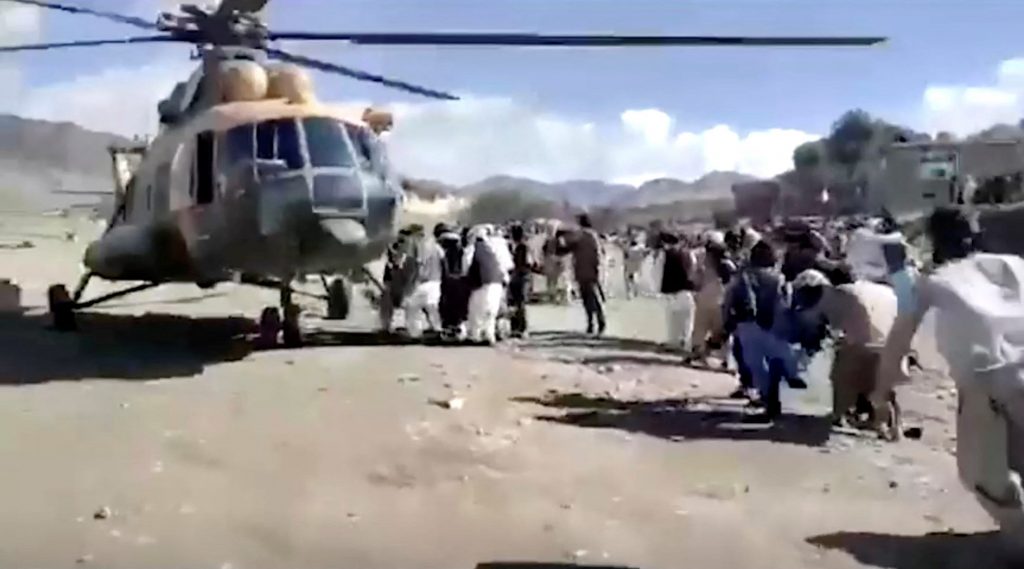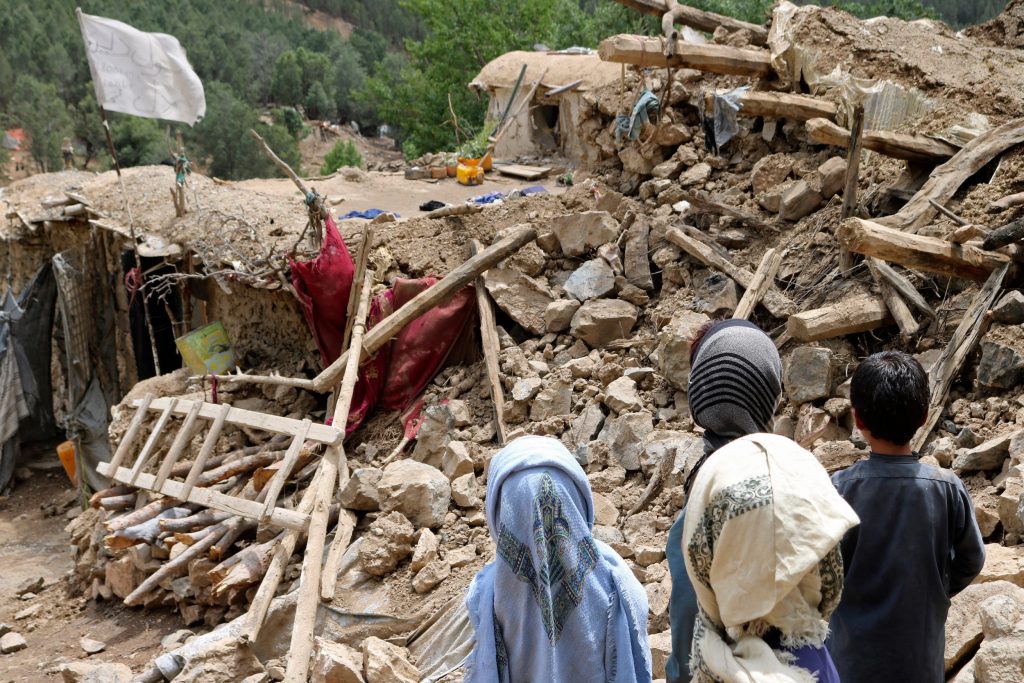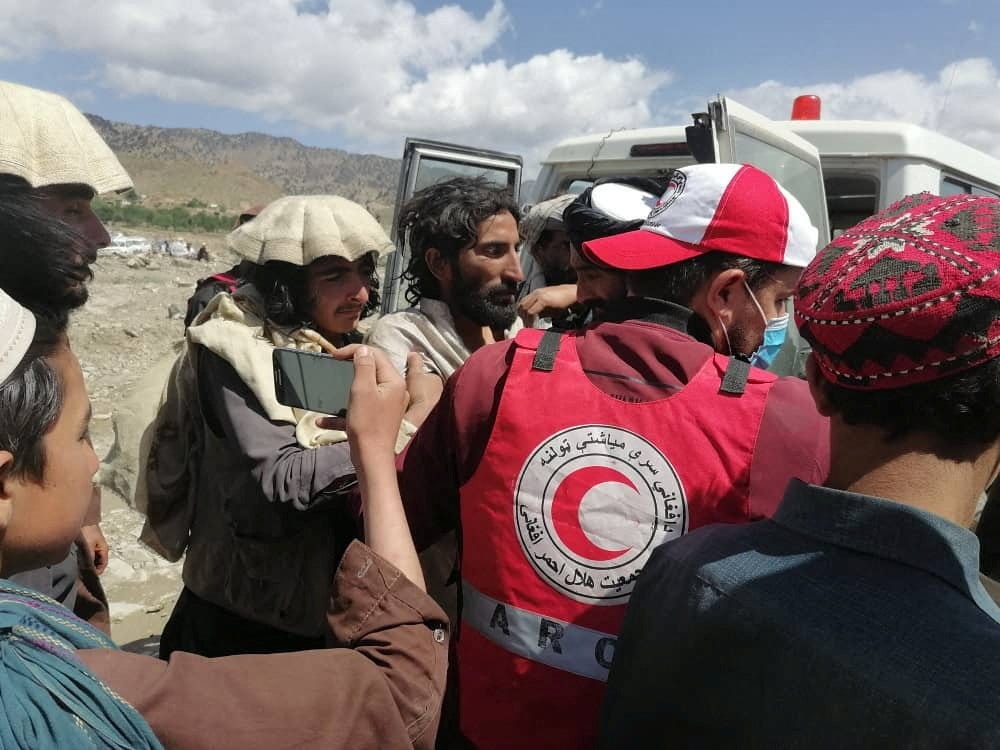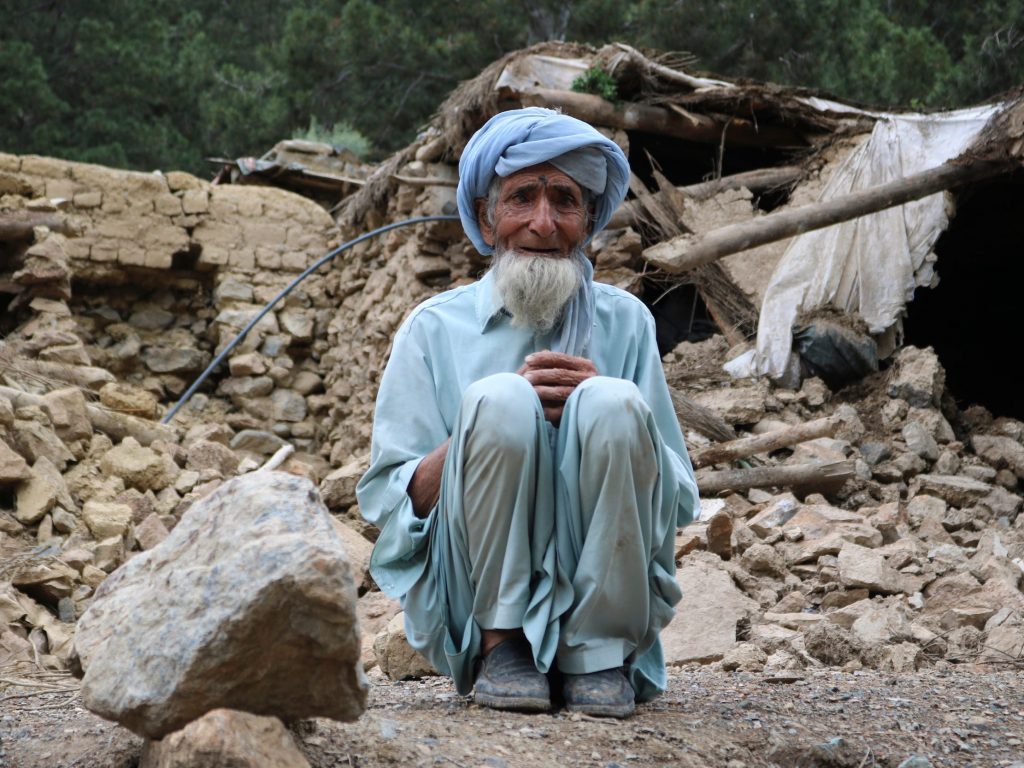- The Taliban is asking for international aid to help respond to a 5.9-magnitude earthquake.
- The earthquake killed an estimated 1,000 people in Afghanistan, where humanitarian aid is scarce.
- The Taliban's supreme leader, Haibatullah Akhundzada, called for aid groups to "spare no effort."
The Taliban, stripped of international aid and alliances, is struggling to respond to Afghanistan's deadliest earthquake in two decades.
The 5.9-magnitude earthquake struck early Wednesday, about 28 miles southwest of the city of Khost. People felt the tremors in Afghanistan's capital, Kabul, and Pakistan's capital, Islamabad, the BBC reported. But the worst damage occurred in Afghanistan's mountainous Paktika Province, where up to 1,800 homes were destroyed, according to the United Nations. All in all, the state-run news agency estimated that more than 1,000 people had died and thousands more were injured.
Since it assumed power about 10 months ago, the Taliban government has not faced a disaster of this scale.
The Taliban's supreme leader, Haibatullah Akhundzada, made a rare public appearance to plead for international organizations "to help the Afghan people affected by this great tragedy and to spare no effort," The Associated Press reported.

"The government is working within its capabilities," Anas Haqqani, a senior Taliban official, said on Twitter on Wednesday. "We hope that the International Community & aid agencies will also help our people in this dire situation."
Another Taliban government spokesman, Bilal Karimi, tweeted a call for aid agencies to send teams to the area, The Washington Post reported.
Prior to the Taliban takeover, foreign aid funded 75% of the previous government's budget, according to The New York Times.
Many international aid organizations pulled out of Afghanistan last year, after US and NATO forces withdrew and left the country in the Taliban's hands. Earthquakes are common across Afghanistan — they kill 560 people there each year, on average, according to the UN — but this one is the deadliest in recent memory.

"Because of the mountainous area, there are rockslides and landslides that we won't know about until later reporting. Older buildings are likely to crumble and fail," Robert Sanders, a seismologist with the US Geological Survey, told the AP. "Due to how condensed the area is in that part of the world, we've seen in the past similar earthquakes deal significant damage."
The UN and aid agencies from Pakistan are currently on the ground responding to the earthquake, according to several news reports.
"We've got people on the ground who are distributing blankets and and hygiene kits. We've got several mobile health and nutrition teams on the way to administer first aid to those who are injured," Samantha Mort, UNICEF's Afghanistan communication chief, told NPR.

"This is a population that is deeply impoverished, where there is high unemployment, where they are suffering from the worst drought in 37 years," she added.
The UN estimates that 95% of Afghans don't get enough to eat. An economic crisis has driven more than 1 million people from their homes.
It's unknown how many people are stuck under rubble or stranded in rural regions without hospital access. The UN expects the death toll to rise.

